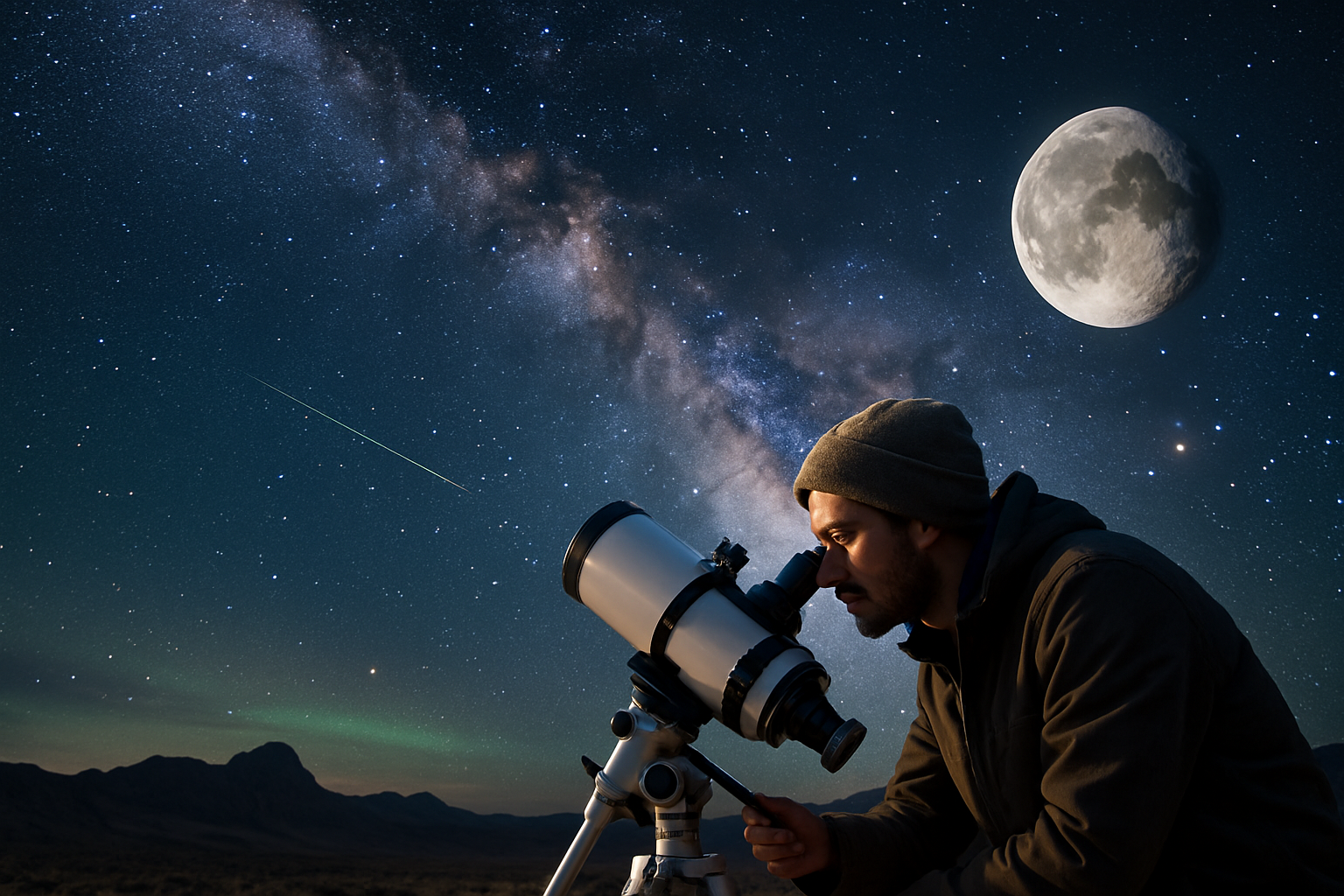Astrotourism: Stargazing Adventures Beyond the Beaten Path
Imagine a vacation where the night sky becomes your playground, constellations your tour guides, and distant galaxies your destinations. Welcome to the world of astrotourism, a captivating blend of astronomy and travel that's taking adventurers to the darkest corners of the Earth in search of celestial wonders. This emerging trend is not just about gazing at stars; it's about immersing yourself in the vastness of the universe, learning about our place in the cosmos, and experiencing the raw beauty of unpolluted night skies. As light pollution continues to obscure our view of the stars in urban areas, astrotourism offers a unique opportunity to reconnect with the celestial sphere and explore some of the most remote and breathtaking locations on our planet.

Astronomical Events as Travel Catalysts
Celestial events are becoming major drivers for travel planning. Solar eclipses, in particular, have sparked a new form of event tourism. The 2017 total solar eclipse that swept across the United States drew millions of visitors to the path of totality, boosting local economies and highlighting the potential of astro-events as tourism magnets. Similarly, destinations along the path of upcoming eclipses are already preparing for an influx of sky-watching tourists. Beyond eclipses, annual meteor showers like the Perseids and Geminids are inspiring travelers to seek out dark sky locations for optimal viewing experiences.
The Educational Aspect of Astrotourism
Astrotourism isn’t just about passive observation; it’s increasingly becoming an educational experience. Many dark sky destinations now offer astronomy workshops, astrophotography courses, and guided stargazing tours led by experts. These programs cater to a range of knowledge levels, from complete beginners to amateur astronomers. Some observatories and planetariums have expanded their offerings to include overnight stays and multi-day astronomy camps. This educational component adds depth to the travel experience, allowing visitors to gain a deeper understanding of the night sky and our place in the universe.
Combining Culture and Cosmos
One of the most fascinating aspects of astrotourism is its ability to blend science with cultural heritage. Many ancient sites around the world have astronomical significance, and visiting these locations offers a unique perspective on how our ancestors viewed and interpreted the night sky. Places like Chichen Itza in Mexico, Stonehenge in England, and the pyramids of Egypt take on new meaning when viewed through an astronomical lens. Tour operators are increasingly offering packages that combine visits to these archaeoastronomical sites with nighttime stargazing, creating a rich, multidimensional travel experience.
The Impact on Local Communities
As astrotourism grows, it’s having a significant impact on the communities that host these celestial seekers. Remote areas with naturally dark skies, often economically challenged, are finding a new source of revenue in star-struck visitors. This has led to the development of specialized accommodations like astronomy-themed hotels and glass-domed igloos for northern lights viewing. However, the influx of tourists also brings challenges, particularly in maintaining the very darkness that attracts visitors. Many communities are implementing strict lighting ordinances and educating both residents and tourists about the importance of dark sky preservation.
Stellar Travel Tips for Aspiring Astrotourists
• Plan your trip around the lunar calendar - new moon periods offer the darkest skies
• Invest in red-light flashlights to preserve night vision
• Bring layers - nighttime temperatures can drop significantly, even in warm climates
• Consider renting or bringing a telescope for enhanced viewing
• Download astronomy apps to help identify celestial objects
• Allow time for your eyes to adjust to the darkness - typically 20-30 minutes
• Check weather forecasts carefully - clear skies are essential for stargazing
• Respect local communities and follow dark sky etiquette
As we continue to explore our planet, astrotourism offers a unique perspective - one that looks outward into the cosmos. It reminds us of our place in the vast universe and the importance of preserving the natural darkness that allows us to connect with the stars. Whether you’re a seasoned astronomer or simply someone who’s marveled at a starry sky, astrotourism provides an opportunity to combine wanderlust with wonder, creating unforgettable travel experiences that truly reach for the stars.





